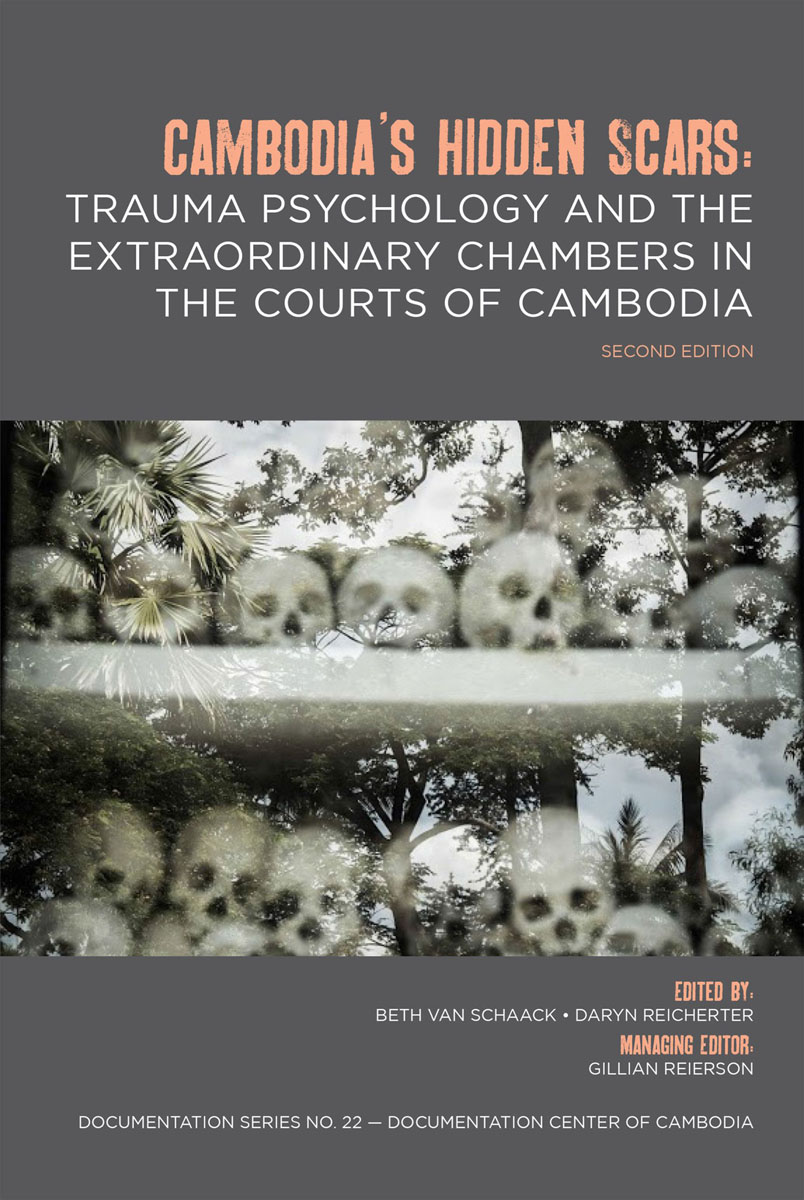The first edition of this volume was originally produced in parallel with the Extraordinary Chambers in the Court of Cambodia (ECCC) process with an eye toward compiling the current research on the enduring mental health sequelae of the Khmer Rouge’s crimes—including intergenerational harm—and presenting concrete recommendations to the Royal Government of Cambodia to address the mental health needs of the Cambodian populace. In the context of Case 002/1, however, the ECCC accepted the entire book into evidence. Furthermore, the VSS and the Civil Party lawyers were able to secure funding commitments from various states (e.g., Australia, Germany, Switzerland) to enable the ECCC to render a more meaningful reparations order than it had done in Case 001.
Given the obvious utility of the first edition of this text to the ECCC proceedings, the editors decided to update the volume with new research and scholarship. The second edition thus includes updated chapters by a number of the original authors covering the impact of international crimes on psychiatry and social psychology in general and on Cambodian survivors of the Khmer Rouge in particular. The second edition contains an entirely new chapter on transcultural psychiatry by Inger Agger. Revised chapters on the impact of trauma on the courtroom include a close analysis and a critique of the proceedings before the ECCC in Cases 001 and 002/1 and the resulting judgments. Finally, Part III includes updated recommendations, although these have not changed appreciably given the lack of progress toward building a more robust and accessible mental health system in Cambodia. All told, it is hoped that this new edition will continue to inform legal proceedings before the ECCC as well as a process of mental health reform at the national level.
Funding for this project was generously provided by Unites States Agency for International Development (USAID).

